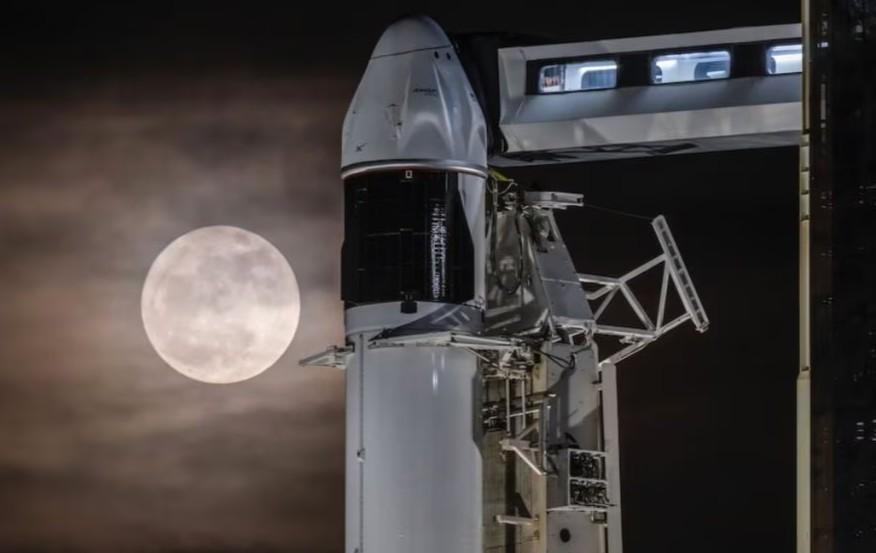
Pichai, Musk & Bezos competing to establish data centres on Moon: Report
In a surprising turn of events, tech giants Sundar Pichai, Elon Musk, and Jeff Bezos are reportedly exploring the possibility of storing and processing data on the Moon. According to a recent report by the Wall Street Journal, these industry leaders are considering the lunar surface as a potential location for their data centers. The idea may seem like science fiction, but it’s gaining traction as companies look for innovative solutions to reduce costs and increase efficiency.
The report suggests that the Moon offers a stable environment with low temperatures in certain regions, which could significantly reduce cooling costs for servers. This is a major advantage, as data centers are notorious for their high energy consumption and heat generation. By utilizing the Moon’s natural temperature regulation, companies could save millions of dollars on cooling systems and reduce their carbon footprint.
Another significant benefit of establishing data centers on the Moon is the availability of open land. Unlike on Earth, where environmental concerns and zoning regulations often limit the construction of large facilities, the Moon offers a vast, untouched landscape. This would allow companies to build massive data centers without worrying about the environmental impact or navigating complex regulatory frameworks.
The push to establish data centers on the Moon is driven by the increasing demand for data storage and processing. As more businesses and individuals move their operations online, the need for reliable and efficient data centers is growing exponentially. By locating these facilities on the Moon, companies can take advantage of the lunar surface’s unique conditions to create cutting-edge data centers that are both cost-effective and environmentally friendly.
Sundar Pichai, CEO of Alphabet and Google, has been at the forefront of this initiative. Google has already made significant investments in its cloud infrastructure, and establishing a data center on the Moon could give the company a major competitive advantage. Elon Musk, founder of SpaceX and Tesla, is also exploring the possibility of lunar data centers. His company, SpaceX, has already made several successful missions to the Moon and is well-positioned to support the establishment of a lunar data center.
Jeff Bezos, founder of Amazon and Blue Origin, is also reportedly interested in establishing a data center on the Moon. Amazon Web Services (AWS) is one of the largest cloud computing platforms in the world, and a lunar data center could provide a major boost to the company’s operations. Bezos’ space exploration company, Blue Origin, has already developed a lunar lander capable of transporting people and cargo to the Moon’s surface.
While the idea of establishing data centers on the Moon is exciting, it’s not without its challenges. One of the major hurdles is the lack of infrastructure on the lunar surface. Companies would need to invest heavily in building the necessary facilities, including power generation, communication systems, and life support systems. Additionally, the harsh radiation environment on the Moon could pose a risk to both people and electronic equipment.
Despite these challenges, the potential benefits of establishing data centers on the Moon are significant. By leveraging the lunar surface’s unique conditions, companies can create efficient, cost-effective, and environmentally friendly data centers that can support the growing demand for cloud computing and data storage. As the tech industry continues to evolve, it’s likely that we’ll see more innovation and investment in lunar-based data centers.
In conclusion, the report of Sundar Pichai, Elon Musk, and Jeff Bezos competing to establish data centers on the Moon is a fascinating development that highlights the ongoing innovation in the tech industry. While there are challenges to overcome, the potential benefits of lunar-based data centers are significant. As companies continue to push the boundaries of what’s possible, we can expect to see more exciting developments in the world of cloud computing and data storage.






